For many, journalism is a demanding profession, often leaving little time for personal pursuits. But for Anna Chernenko, a journalist from Kharkiv, the full-scale Russian invasion of Ukraine has redefined what it means to balance work, family, and survival. Her experiences reveal the profound challenges, fears, and lessons learned in one of the most dangerous regions in the country.
I used to think, honestly, that news journalists—those who specifically work in news—worked a lot, leaving little time for themselves or their families. At least that’s how it seemed to me, judging by my own experience. But when the full-scale invasion began, I realized that we hadn’t really worked at all before that. Now, unfortunately, there’s even more work, and the work itself is harder. At the same time, though, you start to appreciate your job and your personal life—your personal space, so to speak—much more. Despite everything, you begin to find time for the things you want to do, the things you used to deny yourself. I think this isn’t just about media professionals; it applies to all of us. We’ve rethought everything we do and the things we never had time for. Now, we carve out time—at night, in the early morning—but we find it, somehow, to do something for ourselves. Everyday life has changed in small ways, too. You start to notice things you wouldn’t have thought of before.
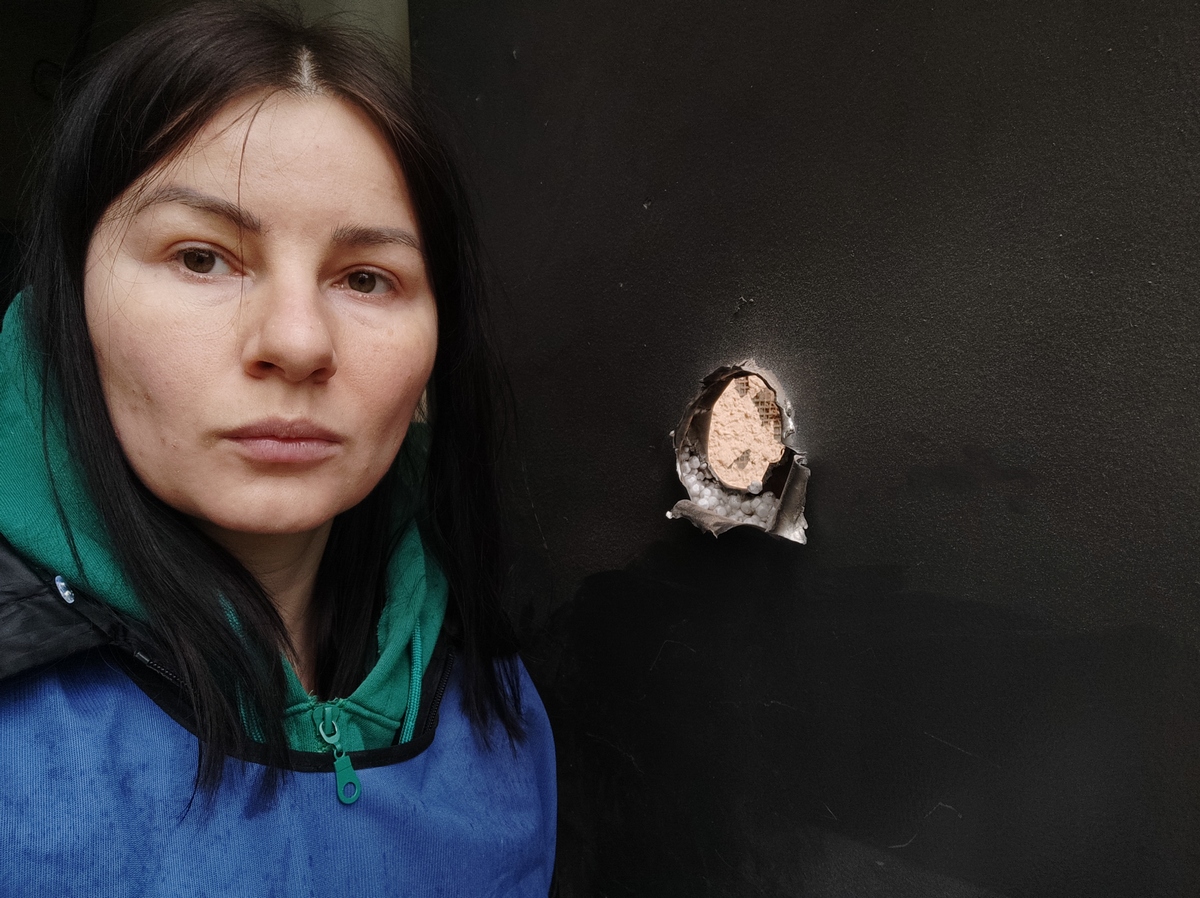
In every bag, there’s a tourniquet. And you realize that’s still not enough—because when you actually need it, it might not be in the right place. But you have it. You also try, at least, not to put things off for tomorrow. Sometimes you don’t even put things off until the evening, because you’re unsure if that evening will come, or if it will be one where you can do what you planned. You try to stay disciplined, but often life dictates something else. Maybe for some, this awareness of danger and fear used to come later, but now it’s always there. It’s not tied to a specific moment. It comes in waves. For instance, in front-line cities, when things quiet down—like in the first two weeks of December in Kharkiv, when it was relatively calm—you try to convince yourself that everything’s fine. Then a deep fear sets in: maybe they’re preparing for something. And you need to gather your strength and emotions to brace for whatever they’re planning.
There have been a few such periods. At the start, when everything was unclear, when there were heavy shellings, when you’d travel to newly liberated territories, unsure of what awaited you there—that was terrifying. Personally, I was deeply scared when Russia resumed its offensive near Vovchansk in May and later intensified shelling in Kupiansk in the summer and autumn. The fear that these territories might be re-occupied brought overwhelming dread. You had seen people returning to rebuild their lives with such determination, and now everything was being destroyed again—like in Vovchansk, which is almost entirely ruined. I remember Izyum, when they exhumed bodies from the mass graves in the Izyum forest.
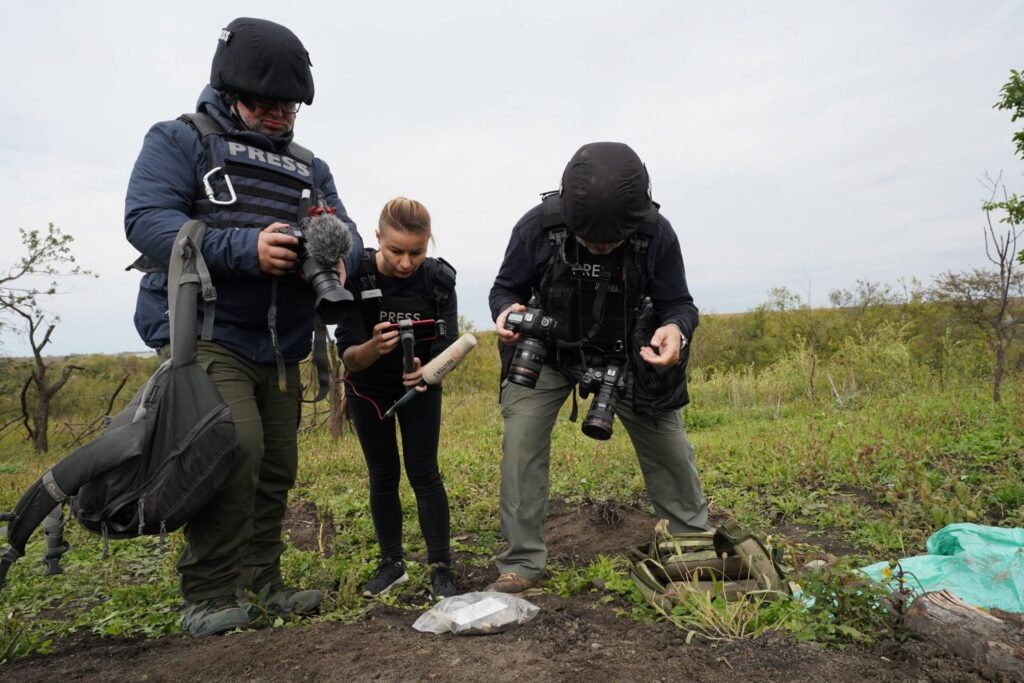
Even now, as I recount this, it feels like back then—and still now—my nervous system or psyche, I’m not sure what to call it, kind of turned off emotions. I couldn’t fully grasp the horror. We filmed, took photos—me and the camera operator—alongside dozens of colleagues from around the world. The mind understands the horror, but the heart refuses to let it in. Each time I recall it for different reasons, the realization deepens. It’s terrifying—beyond words. The exhumation in Izyum was particularly harrowing. On the one hand, there was the physical difficulty—the heat, the smell, which were overwhelming.
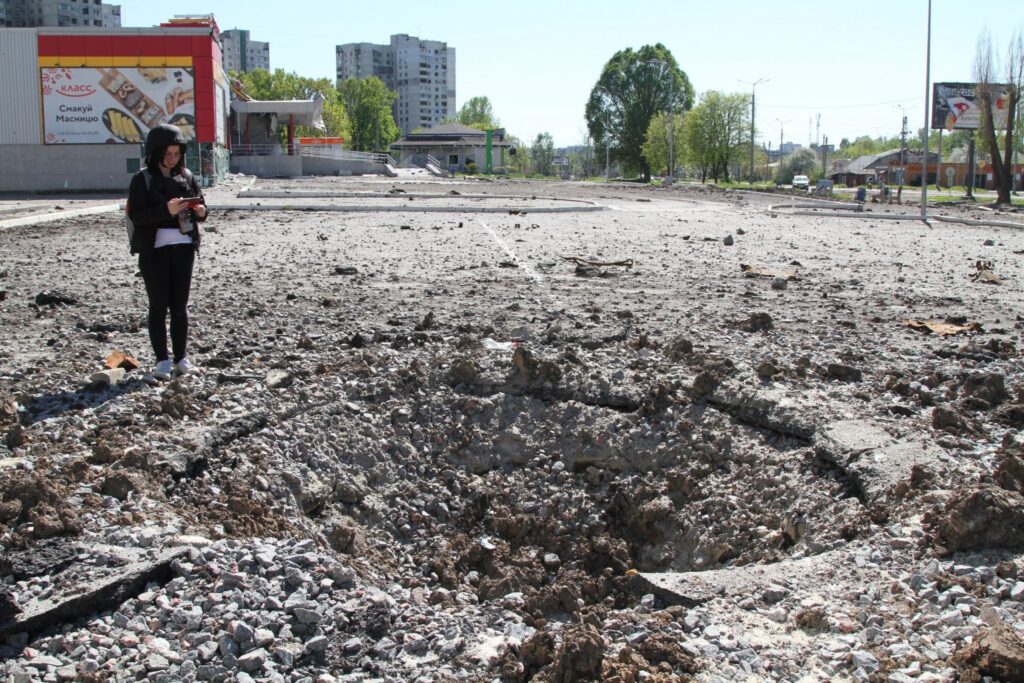
On the other hand, there was the realization that some graves only had numbered markers, making it hard to identify who was buried there. Some people were killed and hastily buried; others died alone, without help. Step by step, you understand what happened, and it becomes increasingly horrifying. That experience will stay with me forever. If I live to a ripe old age, I’ll still remember it vividly—and certainly not as calmly as I do now. The sense of safety and danger becomes blurred, and memory, in a way, saves you. Memory dulls the sharp edges of the horror. Yesterday, my colleague Volodymyr Pavlov reminded me of our trip to Kupiansk, a few days before its full liberation was officially announced. At that time, half the city was still under occupation.
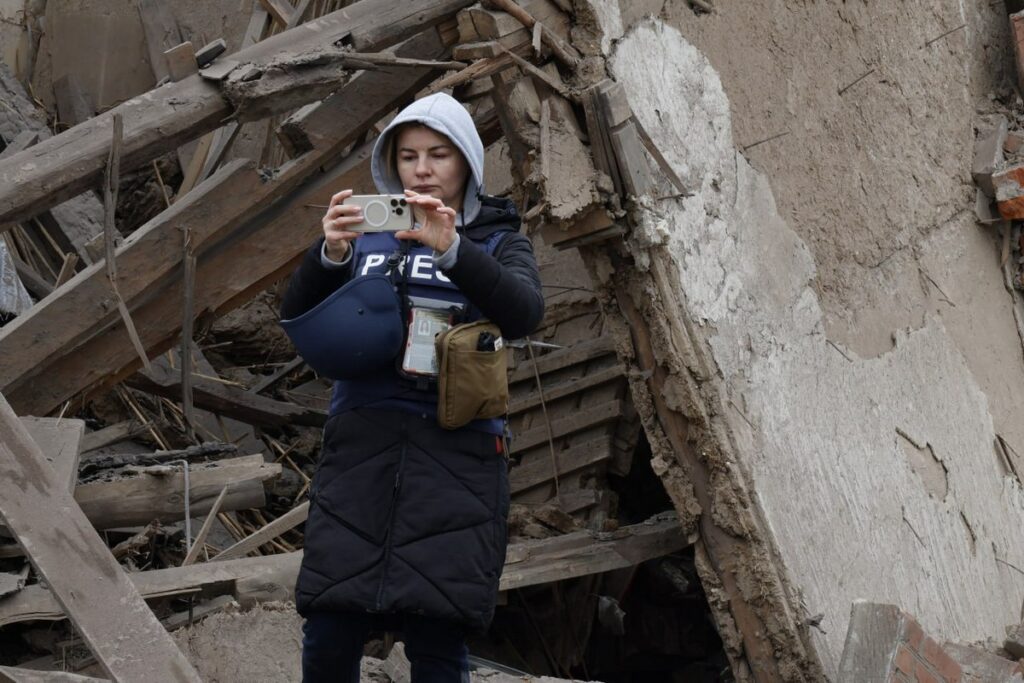
We entered by whatever means we could, not knowing whether remnants of the occupying army or even tanks might still be there. It was a deserted city, and the tension was palpable. I recall when we were filming the central square, capturing the administrative building from which the occupiers’ flag had been removed. Suddenly, shelling began, and we had to run for cover. In moments like those, you don’t think—you just act. But later, when you reflect, the fear becomes more pronounced. For all Ukrainian journalists who might find themselves under fire, or near it, knowing basic first aid is crucial. At the very least, know how to apply a tourniquet—and always have one with you. Better yet, carry a full medical kit. When working near the front lines, listen to the military. Their advice could save your life and the lives of those around you. We’ve all developed or deepened fears during this time. It’s important to acknowledge them—not suppress them. Talk to a psychologist, discuss them with colleagues, and address them. Don’t put them off for later. Whatever your profession, you’re still human. And that humanity deserves care.
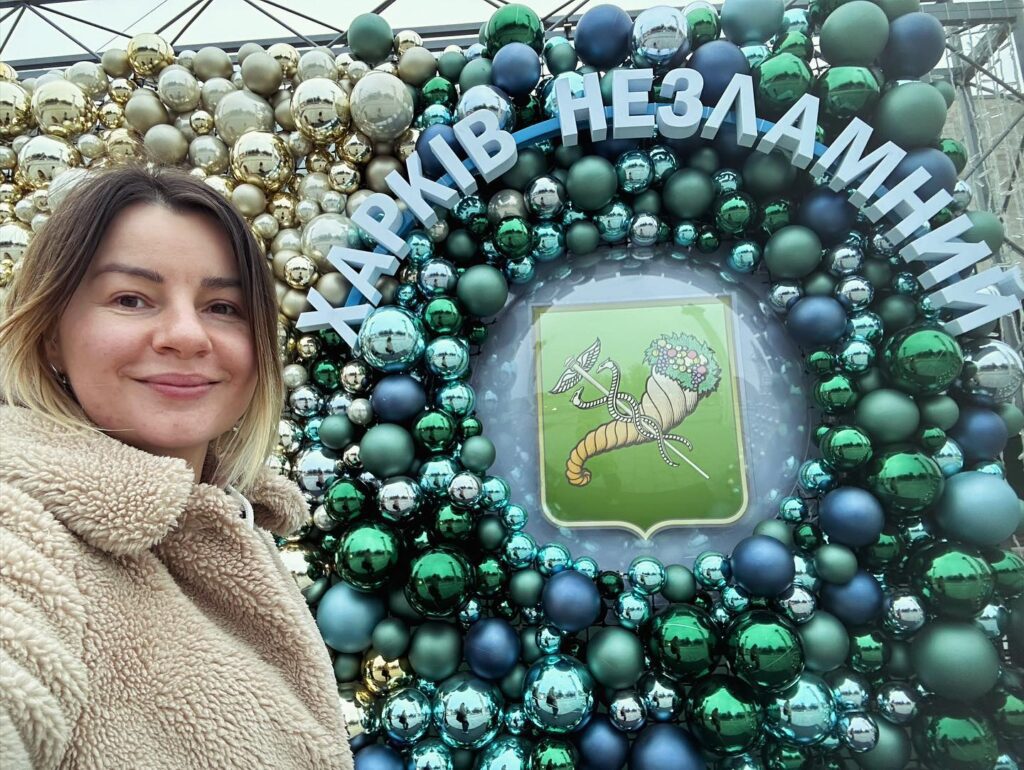
Created as part of the project “Raising awareness among target groups in Ukraine and abroad about Russian war crimes against journalists in 2024 and increasing public pressure for the release of captured journalists”, which is implemented by the National Union of Journalists of Ukraine with support of the Swedish non-profit human rights organization Civil Rights Defenders.

 THE NATIONAL UNION OF
JOURNALISTS OF UKRAINE
THE NATIONAL UNION OF
JOURNALISTS OF UKRAINE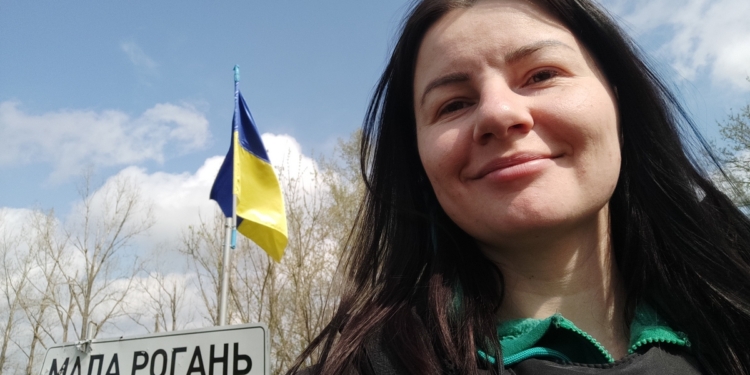
















Discussion about this post